Mozambique: NGO earmarks €3 million to support people living with HIV in Gaza province
Mozambique: Govt. says debt ‘criminal’; Insurgents move toward Pemba; Religion in Cabo Delgado – By Joseph Hanlon
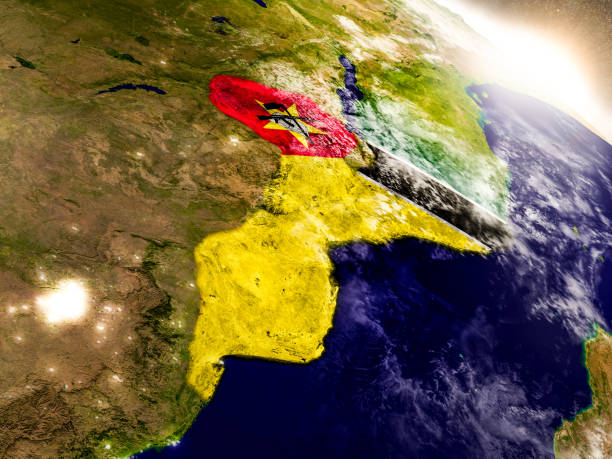
Secret debt guarantee ‘criminal’, ‘illegal’ says government
In its strongest public statement so far, government has called the guarantees on the MAM and Proindicus secret debt to be “illegally obtained” and “criminally obtained”. But it confirms the acceptance of the Ematum bonds and that they will be paid
The $2 bn secret debt taken in 2013-4 was in three parts as loans to three companies largely owned by the security services. Proindicus borrowed $622 mn, $504 mn from Credit Suisse and $118 from VTB. MAM borrowed $535 from VTB. These loans are now challenged.
Ematum borrowed $850 mn in the form of bonds, which have been rescheduled twice and are accepted as payable.
In the government’s request to the IMF for a Covid-19 rapid credit, its Letter of Intent from Minister of Economy and Finance Adriano Afonso Maleiane Bank of Mozambique Governor Rogério Zandamela says: (emphasis added)
“Last year, a restructuring agreement was reached with Eurobond holders providing substantial debt service relief. Mozambique’s Attorney-General has filed a lawsuit in the U.K. to nullify the criminally obtained government guarantee on the loan contracted by Proindicus SA, a state-owned enterprise, with Credit Suisse. Similarly, in its defense against a lawsuit brought by VTB in the U.K., the Government will seek to nullify the illegally obtained government guarantee on the loan contracted by MAM SA, another state-owned enterprise.”
The IMF adds that “the government does not intend to support MAM, which will follow the normal course of commercial bankruptcy without backing, and the validity of the government guarantee on VTB’s loan to MAM is in dispute.”
The full IMF document is HERE or; https://www.imf.org/~/media/Files/Publications/CR/2020/English/1MOZEA2020001.ashx
The Letter of Intent is on page 21 as Annex 1 of the main report.
- Transparency promises to gain $309 mn
To get its $309 mn in Covid-19 money from the IMF, the government has been forced to make unprecedented concessions to transparency of the use of the money. In the Letter of Intent, the ministers say: “We will undertake an independent audit of crisis-mitigation spending and related procurement processes once the crisis abates and will publish its results. We will also publish on the government’s website large public procurement contracts related to crisis mitigation, the names of the awarded companies, their beneficial owners, and ex-post validation of delivery.”
Tao Zhang, IMF Deputy Managing Director and Chair, made clear this is linked to the need to “prevent corruption and misuse of emergency financing, by strengthening transparency and accountability.” And the IMF’s report stresses that legislative and institutional reforms were adopted a few years ago, but there is “a lack of effective implementation.”
The requirement for audits and validation of delivery are important. But the strongest is revealing the “beneficial owners” of companies that win tenders. The escape clause is that it only applies to ” large public procurement contracts,” making is easy to split larger contracts in to many smaller pieces.
There will be a 2020 wage freeze.
The Covid-19 State of Emergency was extended for 30 days by President Nyusi.
- Special report: Religion is shaping Cabo Delgado civil war
Supplement on religion and voting in Cabo Delgado districts and administrative posts, HERE.
- Insurgents move toward Pemba
Insurgent groups moved south toward Pemba Monday-Wednesday (27-29 April), but were stopped by the army and mercenaries. They did, however attack and burn villages.
The target appears to have been Metuge, across the bay to the west of Pemba. On Monday and Tuesday (27-28 Apr) there were reports of large military movements by road into Metuge district and deployment of South Africa Dyke Advisory Group helicopters. It appears that the military took control of Metuge; shops and offices are closed. Details are scarce, but it appears there was a confrontation at Nacoba, Quissanga district, about 20 km south of Quissanga town and 40 km from Pemba (by air, 85 km by road around the bay). T
he Mozambican military moving north and a large group of insurgents moving south met a Nacoba. It is unclear if there was actually any fighting but it was one of the largest government military movements of the war. Intelyse (30 April) says that insurgents on 28 April burned at least 20 houses in Nacoba and killed 15 head of livestock, but that “security forces supported by South African private military contractors (PMCs) arrived at the scene” and that insurgents fled the area “after brief clashes. Multiple military vehicles and helicopters were reported to be present in the area.”
The government military action was a response to a move south by the insurgents, who established themselves near Napuda (Quissanga) and Namiteue (Metuge) 10 km south of Nacoba on the Quissanga-Nacoba-Metuge road. On 27 April there was a report that they had burned the nearby village of Muaja. Pinnacle News (29 Apr) reported that on Tuesday (28 April) insurgents burned Nacoba, Napuda, and a series of villages nearby along the north-south road: 1 de Maio, Natugo, Girumba, and Tacuanama. Carta De Mocambique (30 Apr) says insurgents on Tuesday reached another 5 km south to Messanja and Ntessa in Metuge.
At Nacoba the road is about 15 km inland from the coast and there are confirmed reports of attacks by insurgents on coastal villages. It is unclear if this was a separate group also moving south, or part of the main group leaving the main road and breaking up into smaller groups when confronted by government soldiers.
The village of Arimba was burned on Wednesday (29 Apr), and insurgents stole food and livestock and had a feast. The burning of Arimba is confirmed. One report said the attack was done by 16-20 men on 6-7 motorcycles. Arimba is an old and large coastal village and grew up around a coconut plantation abandoned in the colonial era.
Insurgents were said Thursday morning (30 April) to have raided two other coastal villages. A group was said to be moving south on an old dirt road toward Namau, Namavi and Sessoane villages, 10 km south of Arimba and in Metuge district, and were said to have arrived at mid-day. {unconfirmed}
- Government says 129 insurgents killed this month
Government forces killed 129 insurgents in four operations in April, Interior Minister Amad Miquidade reported, in a joint press conference with Defence Minister Jaime Neto.
+ 39 killed in Muidumbe on 7 April.
+ 59 killed on Quirimba island on 10 April.
+ 30 killed on Ibo Island on 11-12 April.
+ 1 Killed on Ibo with the capture of a boat on 13 April.
Nothing was said about government casualties.
Miquidade also attacked the press and Renamo for “acts of disinformation [of] some news organizations [and] spokesmen.” Miquidade declared that “the Defence and Security Forces strongly condemn the statements by the spokesman of the Renamo party, which accuses the Mozambican state of murdering civilians.” This was a reference to a 23 April statement by Renamo spokesman Jose Manteigas saying the security forces on 12 April had murdered defenceless civilians arriving on a boat; he gave 8 names of people killed, including a local Renamo leader.
Zitamar (29 Apr) writes “In a press conference yesterday, the ministers of defence and the interior said they wouldn’t ‘tolerate’ those who accuse the state of killing civilians during counter-terrorism operations. The comment was aimed at opposition party Renamo, but it has also been interpreted as a veiled threat to the media.”
Seventeen national and international civil society organisations have submitted a letter to President Filipe Nyusi expressing their concern about the increase in police violence against defenceless civilians in Cabo Delgado by the police Rapid Intervention Unit (UIR) and the Special Operations Group (GOE). The organisations also denounce the “harassment and intimidation” of civil society groups and journalists. They note in particular the disappearance on 7 April of Ibraimo Abu Mbaruco, a journalist at Palma Community Radio. Zitamar (29 Apr) reports that “Mbaruco continues to be held by the military”, and that he was held first in the military quarters in Muidumbe. and is now being held in Mueda.
Insurgent control of N380. Insurgents now operate regularly along this route, exercising a form of semi-control over the Unguia – Macomia stretch of the road, according to Intelyse (30 April) Unguia is the junction with the road from Montepuez to the west and Bilibiza and Quisanga to the east. The N380 is the only paved road north from Pemba to the gas fields in Palma. There have been multiple insurgent attacks in March and April 2020 on the N380 between Unguia and Machova Koko 10 km further north. Insurgents control this stretch of road and can erect checkpoints in the area and potentially tax traffic travelling along the road, and are able to attack at will along this route, Intelyse says. This allows the militants to strain government and military supply lines to Cabo Delgado’s Northern Districts.
Zimbabwean President Emmerson Mnangagwa met with President Filipe Nyusi and Defence Minister Jaime Neto this afternoon in Chimoio.
By Joseph Hanlon


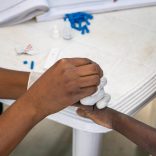

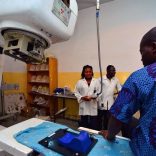
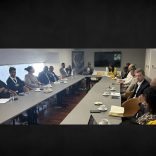
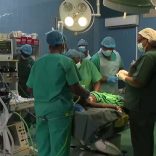
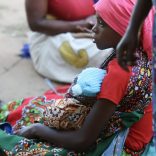




Leave a Reply
Be the First to Comment!
You must be logged in to post a comment.
You must be logged in to post a comment.